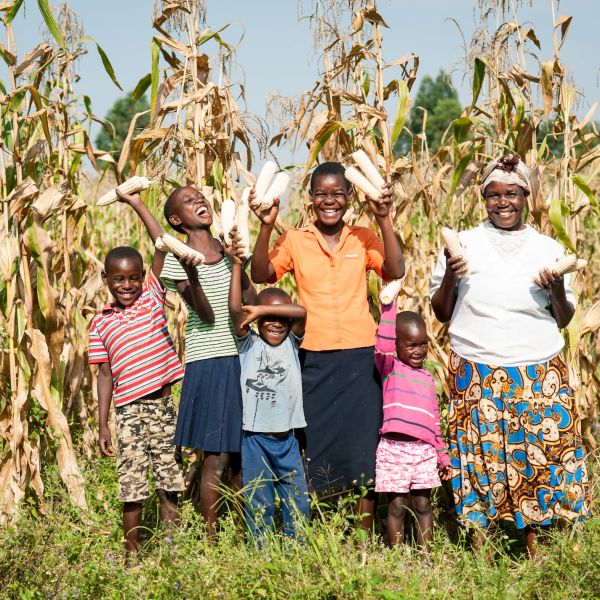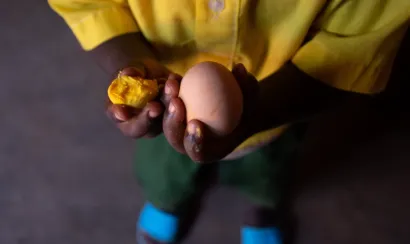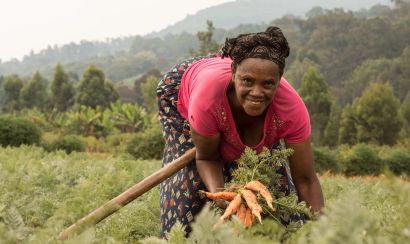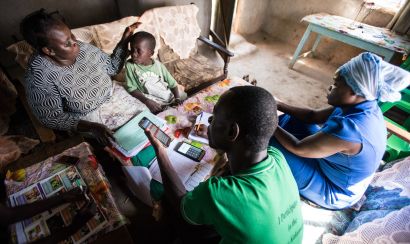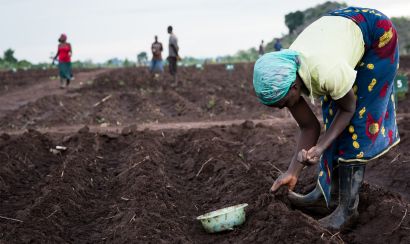Food security
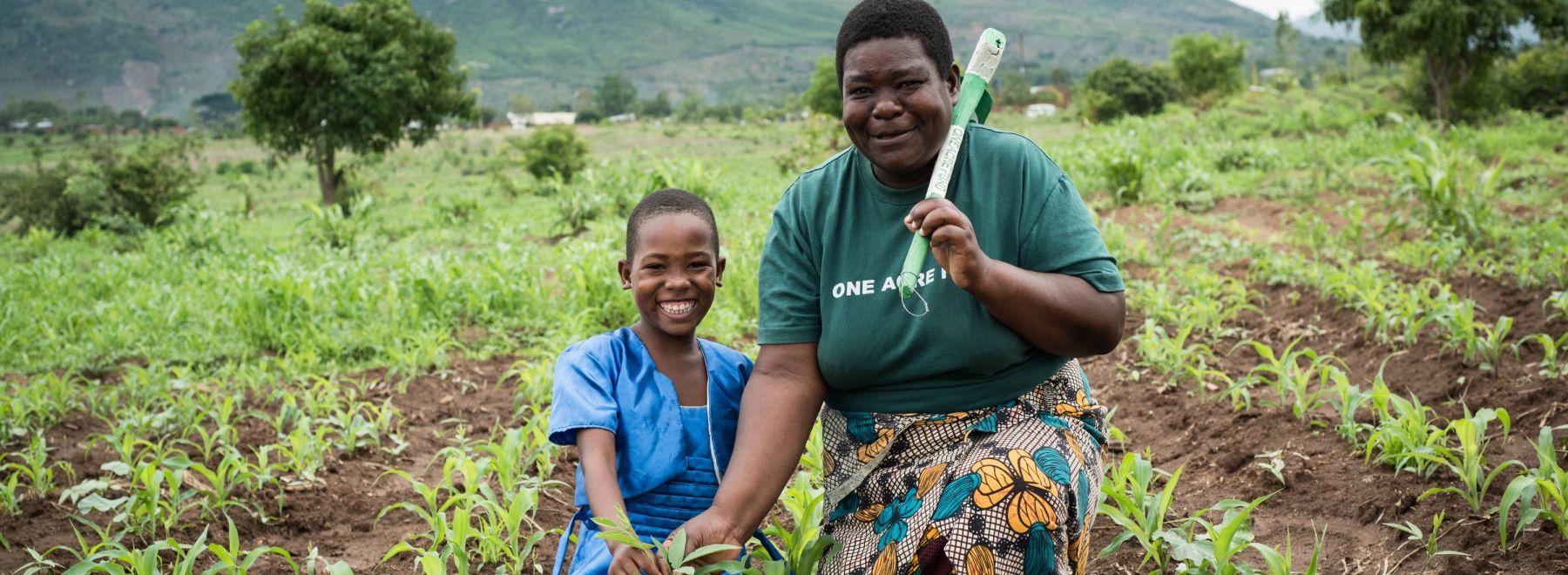
Food is the most basic of human needs. But even for someone who is skilled at growing food, putting enough food on the table can be a challenge.
The farmers we serve rarely need to skip a meal—and their young children get the nutrients they need to grow.
Nobody who grows food should ever go hungry. Yet farmers often face a “hunger season,” the lean months after the last year’s harvest is finished but before the next year’s crop is ripe.
Farmers we serve directly are more likely to have a steady supply of food all year. They also grow and buy more nutritious food for their families—like beans, fruit, vegetables, and eggs—which is particularly important for children under the age of two.
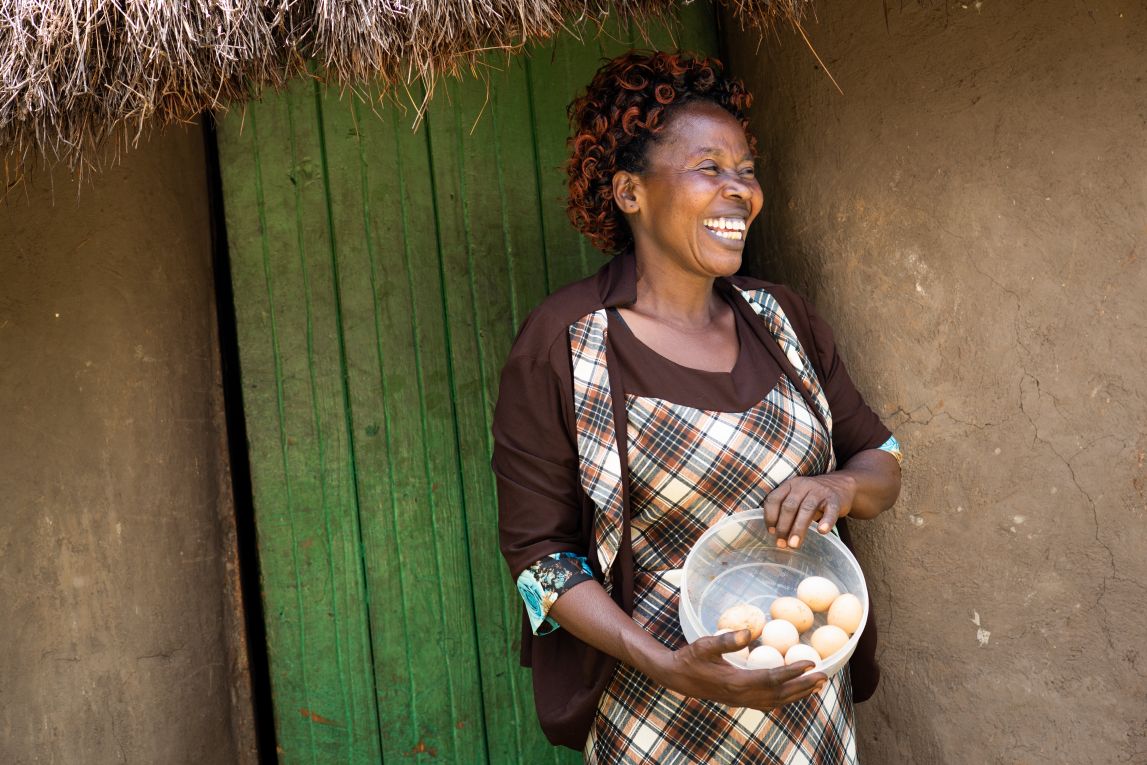
“I now understand how good nutrition contributes to having a healthy family. I also learned how to rear chickens for their eggs. I feed these eggs to my son Joshua, which provides him with a good source of protein. He is steadily growing in weight and his mind is active and healthy.”
Roselyn Wawili, Bungoma, Kenya
How do we measure our impact on food security?
We assess hunger using the UN Food Insecurity Experience Scale. About half of farmers where we operate face moderate-to-severe hunger, and 15 percent experience severe hunger. In 2022, we saw a 6 percent drop in farmers reporting severe hunger after they joined our direct program. This figure is as high as 30 per cent in high needs markets such as Burundi.
We also measure whether our customers’ children are eating nutritious diets. In 2021, the share of children under the age of two meeting minimum diverse diet standards increased by 12%, with gains particularly pronounced in Rwanda, where our nutrition programming is most developed.
Latest updates
A good egg: An evaluation of a SBCC campaign to increase egg consumption among children in Rwanda
This article shares the midline results of a study where we evaluate the impact of a social and behavior change communication campaign (SBCC) to promote egg consumption among young children in rural Rwanda.
Agriculture/nutrition 2018 RCT results
Assessing the effectiveness of our integrated agriculture/nutrition intervention program targeted at families in Western Kenya with children ages 6-35 months
Assessing our holistic impact
This paper describes multi-year (2016-2019) results of holistic impact measurements to showcase impact across three domains for each of our countries of 0peration using the impact scorecard.
Smallholder Farming - at the Centre of our Food Systems
Food is the most basic of human needs. It is essential not just for the health of individuals but also that of communities, which, in turn, affects the health of national economies.
Invest in food security
Nobody who grows food should ever go hungry. Make an investment in the lives of farmers with a monthly gift.
